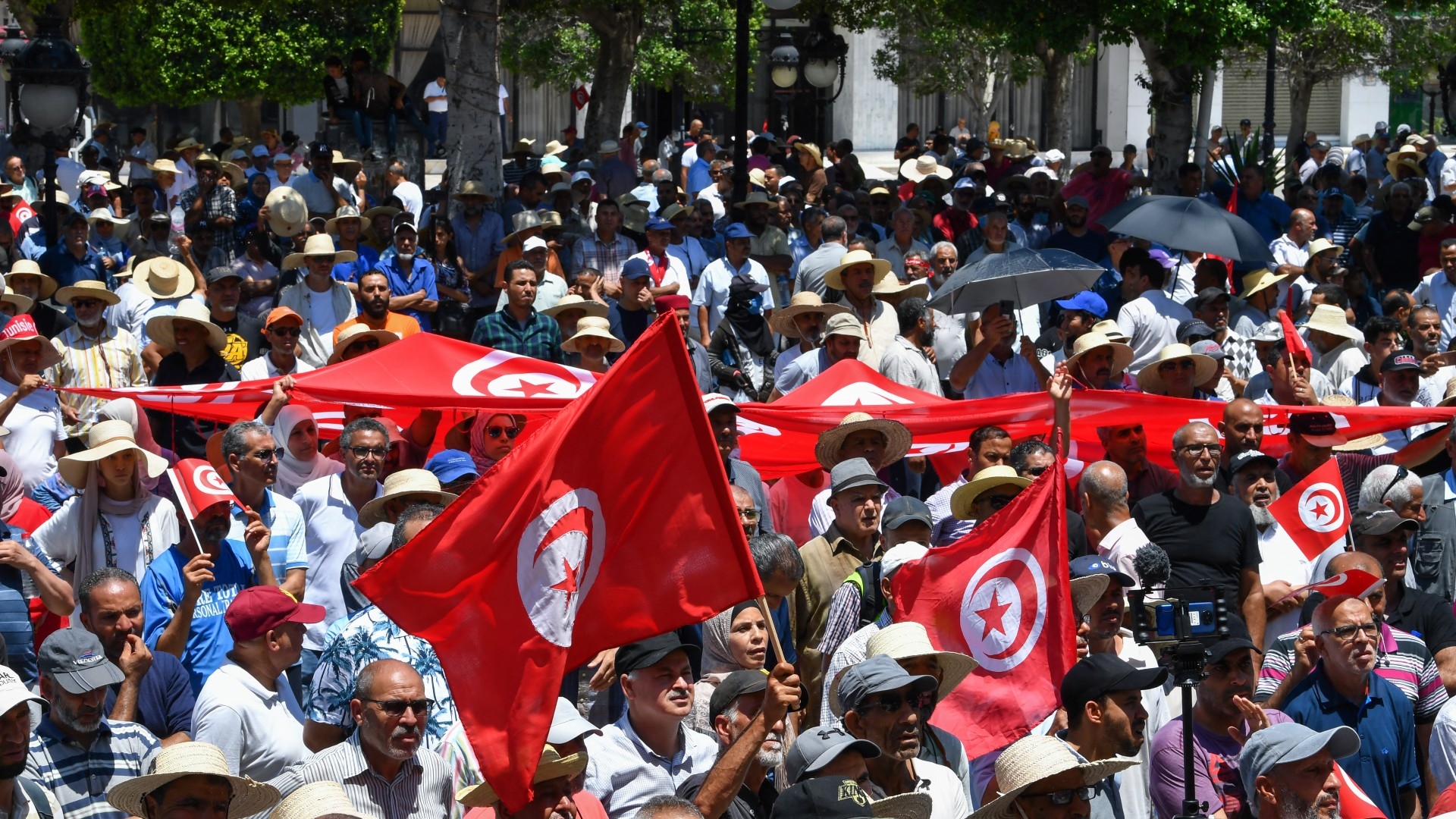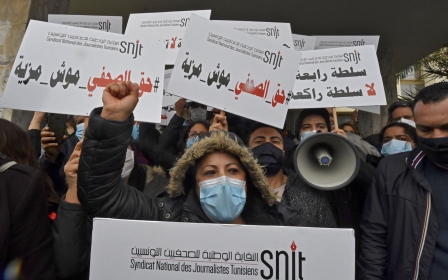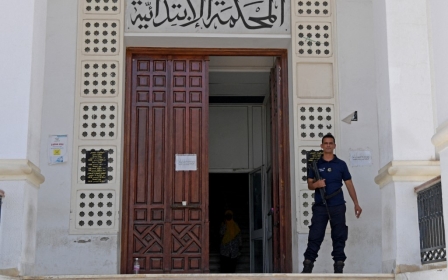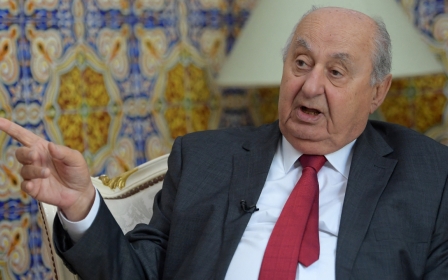Tunisia: Thousands take part in protests against President Saied's crackdown

Thousands of people in Tunisia took to the streets on Sunday to protest against President Kais Saied's power grab, which opponents have denounced as a setback for the 2011 pro-democracy revolution.
The protests came a day after Tunisian judges announced they would extend their national strike for a third week in protest against a decision by President Saied to sack dozens of their colleagues.
Saied dismissed 57 judges on 1 June, accusing them of corruption and protecting terrorists, charges the Tunisian Judges' Association said were mostly politically motivated.
Judges suspended their work in courts three days later and said the president's decisions were designed to control the judiciary and its use against his political opponents.
The protest was organised by the Salvation Front, a coalition including the Ennahda party, which was the largest in parliament until Saied dissolved it. The protesters marched through central Tunis to Avenue Habibi Bourguiba, watched by a heavy police presence.
New MEE newsletter: Jerusalem Dispatch
Sign up to get the latest insights and analysis on Israel-Palestine, alongside Turkey Unpacked and other MEE newsletters
Since his 25 July power grab last year, Saied has announced a set of controversial measures, which include the suspension of parliament, shutting down the country's independent anti-corruption authority and sidelining the national election authority. In early February, he dissolved the Supreme Judicial Council and granted himself control over the selection and promotion of judges.
The measures, the planning of which was first revealed by Middle East Eye, have been denounced as a coup by rights groups and opposition parties.
The president says his actions were both legal and necessary to save Tunisia from an "imminent threat". He also said he would rewrite the constitution that was introduced after the pro-democracy 2011 Arab Spring revolution and would put the new version to a referendum in July.
#Tunisia: "Emphasizing the principals of freedom and in defense of democratic gains"
— Tunisia Pulse (@PulseTunisia) June 19, 2022
The National Salvation Front protests today in Revolution Street #Tunis. pic.twitter.com/MuQyNle2DQ
Sunday's protest followed similar anger on Saturday, which saw people also demonstrating over the proposed referendum.
The president's supporters have said he is standing up to elite forces whose corruption has left the country in a decade of political paralysis and economic stagnation.
However, while the president has focused on restructuring Tunisian politics, a looming economic crisis threatens to unravel his plans, as the government struggles to finance its 2022 deficit and repay debts.
Middle East Eye delivers independent and unrivalled coverage and analysis of the Middle East, North Africa and beyond. To learn more about republishing this content and the associated fees, please fill out this form. More about MEE can be found here.




